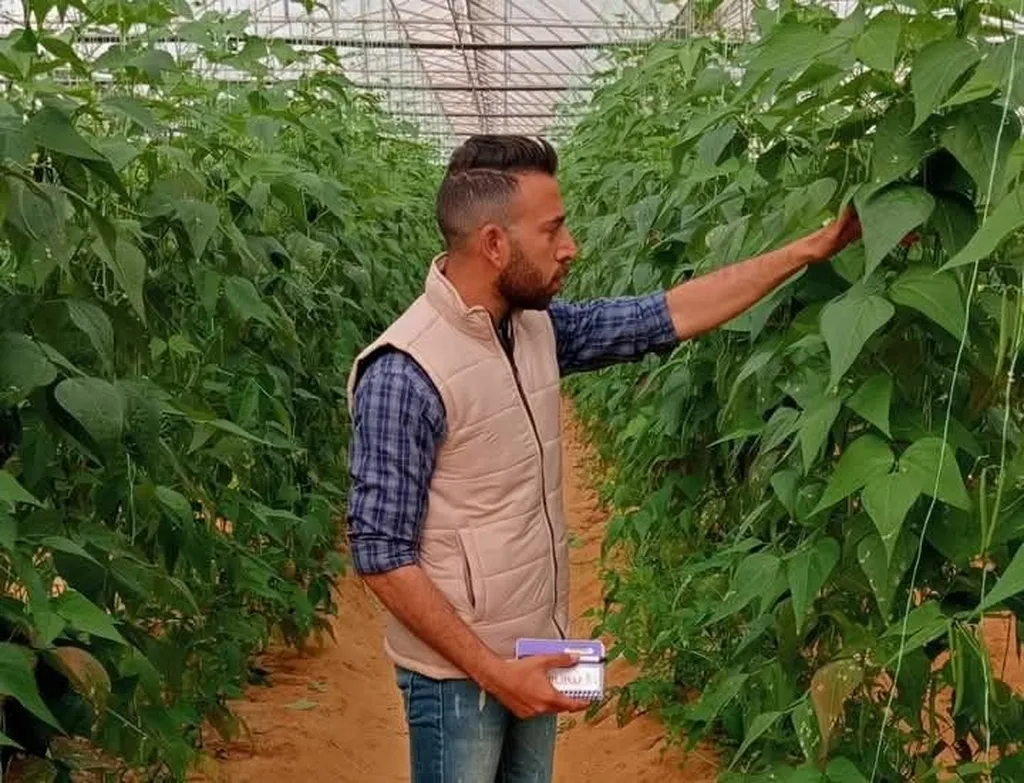In the heart of Egypt, a groundbreaking study is reshaping the way we approach plant disease diagnosis, merging the worlds of artificial intelligence and agriculture to create a more sustainable future. Researchers, led by Alaa Taha from the Department of Artificial Intelligence at Mansoura National University, have developed a deep learning model that could revolutionize how farmers and agronomists detect and manage plant diseases.
The study, published in the Journal of Scientific Research in Science, focuses on integrating deep learning—a subset of AI—with plant pathology. By training a MobileNetV2 convolutional neural network (CNN) on the Plant Village dataset, the team achieved an impressive 99.4% validation accuracy in identifying plant diseases. This high level of accuracy is a game-changer for the agriculture sector, offering the potential for early detection and significantly reducing the need for chemical pesticides.
“Our approach not only facilitates early detection but also aligns with sustainable agriculture practices,” Taha explained. “By minimizing the reliance on chemical interventions, we can promote healthier crops and a more environmentally friendly farming approach.”
The implications for the agriculture sector are vast. Early detection of plant diseases can lead to more targeted and effective treatments, reducing crop losses and increasing yields. This, in turn, can have a significant impact on food security, particularly in regions where agriculture is a primary source of income and nutrition.
The study also highlights the challenges and opportunities that lie ahead. Data scarcity and the need for diverse datasets are critical hurdles that need to be addressed to fully realize the potential of AI in plant pathology. Additionally, integrating AI tools into existing agricultural frameworks will require collaboration and innovation across multiple sectors.
Looking ahead, the integration of AI with other technologies, such as the Internet of Things (IoT) and drones, could further enhance disease management. Imagine a future where drones equipped with AI algorithms can survey vast fields, identifying and diagnosing plant diseases in real-time. This level of precision and efficiency could transform the way we approach crop health management.
As the agriculture sector continues to evolve, the role of AI and deep learning will undoubtedly become more prominent. The study by Taha and his team is a significant step forward, demonstrating the potential of AI to revolutionize plant disease diagnosis and pave the way for a more sustainable and food-secure future.
In the words of Taha, “This is just the beginning. The integration of AI into agriculture holds immense promise, and we are excited to be at the forefront of this transformative journey.”

